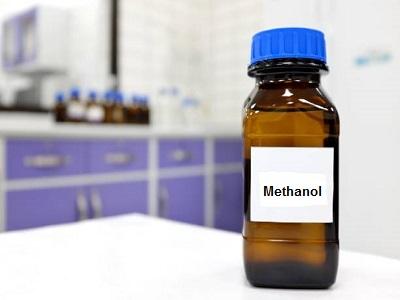Methanol prices serve as a vital indicator within the global energy and chemical markets, reflecting the dynamics of supply, demand, and various economic factors. As a versatile chemical commodity, methanol finds applications across industries, including fuel blending, formaldehyde production, and as a feedstock for various chemicals like acetic acid and olefins. Understanding the intricacies of methanol pricing involves examining a complex interplay of factors.
At the heart of methanol pricing lies its production process, primarily derived from natural gas, coal, or biomass through synthesis gas. Fluctuations in natural gas or coal prices can significantly impact methanol production costs. Additionally, geopolitical events affecting the supply of natural gas or disruptions in coal mining operations can exert upward pressure on methanol prices. Conversely, technological advancements in production methods, such as the development of more efficient catalysts or processes, may contribute to price moderation.
The demand for methanol is multifaceted, with diverse end-users spanning industries like automotive, construction, and pharmaceuticals. As governments worldwide intensify their focus on reducing greenhouse gas emissions, methanol's role as a low-carbon fuel gains prominence. This burgeoning demand for methanol as an alternative fuel source, particularly in transportation sectors, has the potential to drive prices upward. Furthermore, methanol's utility as a chemical feedstock ensures consistent demand from sectors like plastics manufacturing and paints and coatings, thereby influencing its pricing dynamics.
At the heart of methanol pricing lies its production process, primarily derived from natural gas, coal, or biomass through synthesis gas. Fluctuations in natural gas or coal prices can significantly impact methanol production costs. Additionally, geopolitical events affecting the supply of natural gas or disruptions in coal mining operations can exert upward pressure on methanol prices. Conversely, technological advancements in production methods, such as the development of more efficient catalysts or processes, may contribute to price moderation.
The demand for methanol is multifaceted, with diverse end-users spanning industries like automotive, construction, and pharmaceuticals. As governments worldwide intensify their focus on reducing greenhouse gas emissions, methanol's role as a low-carbon fuel gains prominence. This burgeoning demand for methanol as an alternative fuel source, particularly in transportation sectors, has the potential to drive prices upward. Furthermore, methanol's utility as a chemical feedstock ensures consistent demand from sectors like plastics manufacturing and paints and coatings, thereby influencing its pricing dynamics.
Get Real Time Prices of Methanol: https://www.chemanalyst.com/Pricing-data/methanol-1
Global economic conditions wield a substantial influence on methanol prices. Economic growth stimulates demand across industries, thereby bolstering the need for methanol in various applications. Conversely, economic downturns can dampen industrial activity, leading to reduced demand and downward pressure on prices. Moreover, currency fluctuations and trade policies impact methanol pricing, particularly in regions where methanol is imported or exported extensively.The energy landscape, including developments in renewable energy and regulatory frameworks aimed at reducing fossil fuel dependency, shapes methanol pricing trends. Methanol's potential as a green energy carrier, particularly when produced from sustainable sources like biomass or captured carbon dioxide, aligns with the global shift towards cleaner energy alternatives. Consequently, policies incentivizing the use of renewable methanol or imposing carbon pricing mechanisms can influence its market dynamics and pricing.
Supply chain disruptions, whether due to natural disasters, geopolitical tensions, or logistical challenges, can have immediate repercussions on methanol prices. Given methanol's integral role in numerous industries, any disruption along the supply chain, from production to distribution, can lead to price volatility. Moreover, inventory levels and storage capacity play a crucial role in mitigating the impact of supply disruptions on prices, with adequate buffer stocks serving to stabilize markets during periods of uncertainty.
Environmental regulations and sustainability initiatives increasingly impact methanol pricing dynamics. Stricter emissions standards drive demand for cleaner-burning fuels like methanol, while regulations governing chemical emissions and waste disposal influence its use in manufacturing processes. Furthermore, the adoption of circular economy principles and initiatives to reduce plastic waste can reshape methanol demand patterns, particularly in applications where it serves as a feedstock for recyclable materials.
Market sentiment and speculative activity also contribute to methanol price fluctuations. Investors and traders monitor geopolitical developments, production trends, and demand outlooks to assess future price movements. Additionally, factors like weather patterns, which can affect agricultural yields and, consequently, biomass-derived methanol production, can influence market sentiment and trading activity.
In conclusion, methanol prices reflect a complex interplay of supply, demand, economic conditions, regulatory frameworks, and market sentiment. Understanding the drivers behind methanol pricing is essential for stakeholders across industries, from producers and distributors to end-users and investors, enabling informed decision-making and risk management strategies in a dynamic and interconnected global marketplace.
Get Real Time Prices of Methanol: https://www.chemanalyst.com/Pricing-data/methanol-1
Contact Us:
ChemAnalyst
GmbH - S-01, 2.floor, Subbelrather Straße,
15a Cologne, 50823, Germany
Call: +49-221-6505-8833
Email: sales@chemanalyst.com
Website: https://www.chemanalyst.com
